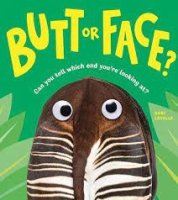While reading this historical novel I thought of nursing heroines Nightingale, Barton, and Dix, the shocking and dramatic statistic that over twice as many Civil War soldiers died of disease and preventable wound infection instead of actual bullets (the novel helps answer why), the trials and tribulations of the first woman doctor, Elizabeth Blackwell, Alcott's Little Women, and, due to the vivid "ob/gyn" details, the complications and dangers of nineteenth century childbirth. Here is a real "chick lit" book?
Nevertheless, because of the author's convincing character development of the female protagonist and ensemble character collection from her twin sister and male doctor friends with romantic implications to historical cameos from Ms. Dix and Abe Lincoln to vividly described battlefield and field hospital scenes, my male brain did keep my hand turning the pages.
Young Mary Sutter has learned and practiced midwifery through her successful midwife mother but she wants more. She is determined in becoming a real doctor and surgeon--midwifery was, until the late nineteenth century, about the only doorway or opportunity for women to practice any kind of medicine. Medical schools were closed to her. How much of her family is she willing to sacrifice? Will her bulldog tenacity sustain her? Is it a pipe dream and has she reached a dead end? James Blevens, a young local doctor, even turns her down as an assistant to his later regret.
However, fate intervenes. America's greatest war is about to begin. Although reluctantly admitted, every war provides unique medical learning, experience, and opportunities for the medical profession and women such as Mary. Inevitably, treating large numbers of wounded results in new procedures and the development of new drugs. For instance, when the Civil War begins military surgeons had little experience with limb amputations. Here is a macabre scene where Mary is assisting her supervisor and friend, Doctor Stipp, by reading step by step instructions from a medical textbook on how to amputate a leg. ' "Yes," he said. "Above The knee." " [Mary]Then it says to apply the tourniquet above mid-thigh." "We don't have a tourniquet, " Stipp said...She read, "An assistant is to firmly grasp the thigh with both hands...while the surgeon makes a circular incision...." ' Two years later, Mary herself will perform 35 such operations in one day!
Yes, there are some cliches and too much explanatory narration typical of many first novels. And the novel does end too abruptly after the bloody 1863 Antietam battle with only a later 1867 epilogue tacked on. I am hoping for a sequel since the doctor heroine is only 27 year old. Name me another novel focusing on the "blood up to the elbows" situation and experience of medical care and personnel of our Civil War or any war? Is there a good M.A.S.H. novel out there? In my opinion, even Ken Burn's Civil War classic documentary gave the medical corp and their patients short shrift. The ACHS library does have wounded soldier novels such as Trumbo's 1939 Johnny got His Gun and Kovic's later Born On The Fourth Of July. And, of course, Cold Mountain--don't be surprised if Hollywood also discovers Mary Sutter.
For the historically inclined, Stephen B. Oates's A Woman Of Valor remains the best biography of Clara Barton. There's also the old 1956 standard, Angel Of The Battlefield by Ross. Lonely Crusader by Cecil Woodham-Smith has been THE biography of Florence Nightingale since 1951 although it may be replaced by the impressive 2008 Florence Nightingale: The Making Of An Icon by Mark Bostridge. There are also numerous biographies about Elizabeth Blackwell on a wide range of reading levels. Although hopefully irrelevant by now, Elizabeth Morgan's 1980 personal bestseller, The Making Of A Woman Surgeon, remains a good read.
Books like My Name Is Mary Sutter need to be written, read, available in our libraries, and assigned in our classrooms. Every so often we need a reminder of a war's "butchers bill" or dark side as a counterbalance to cheering, patriotism, parades, flag waving, and celebrations of battlefield heroics. Any animal loving authors out there? I'm waiting for a historical novel pertaining to "animals" in war. Did you realize over 3,000 horses died at Gettysburg? 364 pages. Ages 14 and up
Recommended by Robert L. Hicks, High School Librarian. Kansas






